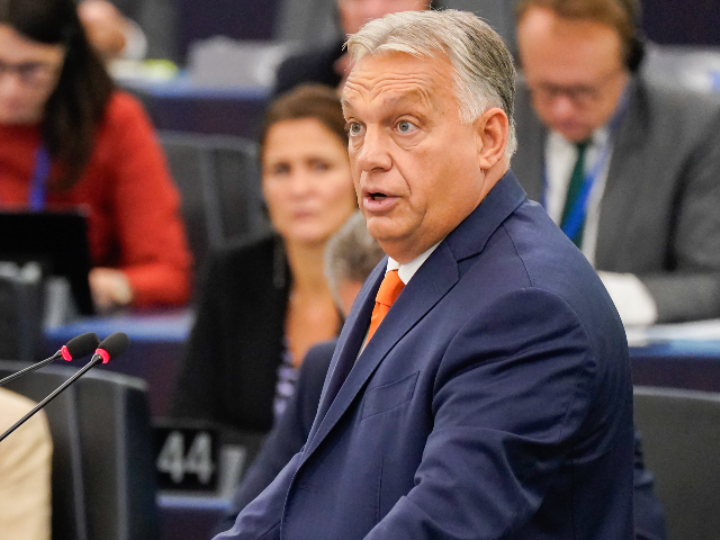by Giles Merritt*
Bonds issued jointly by the eurozone’s 19 countries could yield trillions of euros for wealth-creating new investments, but fierce opposition in Germany and other ‘frugal’ countries has first to be overcome.
Thanks to Trump, the time for Eurobonds is ripe. International investors began to sour on US Treasury bills in his first term in the White House, and their desertion is turning from trickle to flood. In 2015, foreign investors held half of US Treasury debt, and now that’s 30 per cent and shrinking fast.
Euro-denominated ‘mutualised’ bonds could raise new funding for European rearmament and for the snowballing social and healthcare costs of ageing. America’s ‘exorbitant privilege’ of issuing debt in dollars to cover its federal deficits could be replicated by Europe. Cash-strapped governments would then be able to turn the tide of populism.
The barrier is richer EU countries’ conviction that poorer ones would squander the proceeds. Lars Klingbeil, Germany’s social democrat Finance Minister and number 2 in Friedrich Merz’s coalition government, has repeatedly vetoed further borrowings akin to the €750bn NextGeneration EU covid recovery fund in 2020. The Netherlands and other Scandinavian EU members are also opposed to varying degrees.
Advocates of Eurobonds or comparable financial instruments argue that the advantages of a rival to US bonds far outweigh the risks. They say that even if the new borrowings raised a massive €3.76tn, the eurozone’s debt-to-GDP ratio would only be 100 per cent, far less than France’s 114 per cent or Italy’s 137 per cent.
Right now, Europe is a bit player when compared to US dominance of international financial markets. Euro-denominated debt issued by the EU totals €1.3tn, about the same as a single busy day of transactions in US Treasury securities, for which the international market is reckoned at $30tn.
The EU’s aim wouldn’t be to sap the dollar’s strength but to satisfy European countries’ overwhelming financial needs. As well as ballooning defence budgets, social benefits and healthcare costs are expected to double by mid-century, absorbing a quarter of most governments’ spending. Even Germany “is transitioning from fiscal saint to fiscal sinner”, comments a prominent banker there.
A variety of suggested eurozone debt instruments could build on ideas advanced more than a decade ago in the wake of the near-meltdown of the world’s financial markets and the EU’s sovereign debt crisis. All offer easier and cheaper access to finance.
There’s a hybrid of national ‘red’ bonds to be converted over time into common ‘blue’ bonds that could cut borrowing costs. Another possibility is sovereign bond-backed securities (SBBS), which would bundle EU member states’ national bonds together with other certifiably safe assets to make an attractive new investment package. There are also innovative financial products based on the digital euro, which EU policymakers already back as a way to free European consumers from US-owned credit cards.
The key question is the scale on which a Eurobond market would be developed. Europe needs to be truly ambitious if it is to benefit from a far more liquid US-style capital market. To that end, a group of IMF economists have suggested that a European Debt Management Agency could be the answer by balancing the needs and vulnerabilities of richer and poorer eurozone countries.
The IMF specialists argue that jointly issued debt equivalent to 15 per cent of the eurozone’s €16tn yearly GDP “could be issued safely and without direct fiscal transfers”. The problem, they readily acknowledge, is overcoming the many political and technical hurdles.
What are the chances that a Europe smarting under Trump’s indignities will wake up to the need for a revolutionary fiscal rethink? The in-fighting over the EU’s next budget doesn’t augur well. Despite multiplying demands for more EU funding, the 2028-34 MFF is expected to rise only minimally from present inadequate levels.
Europe’s national leaders cannot be held responsible for Black Swans like COVID-19, Trump or Putin. But they deserve blame for failing – indeed refusing – to seize opportunities presented to them. The chance to exploit Donald Trump’s mismanagement of the dollar as the cornerstone of international financial markets is an opportunity of global dimension.
*Founder of Friends of Europe
** first published in friendsofeurope.org




 By: N. Peter Kramer
By: N. Peter Kramer
